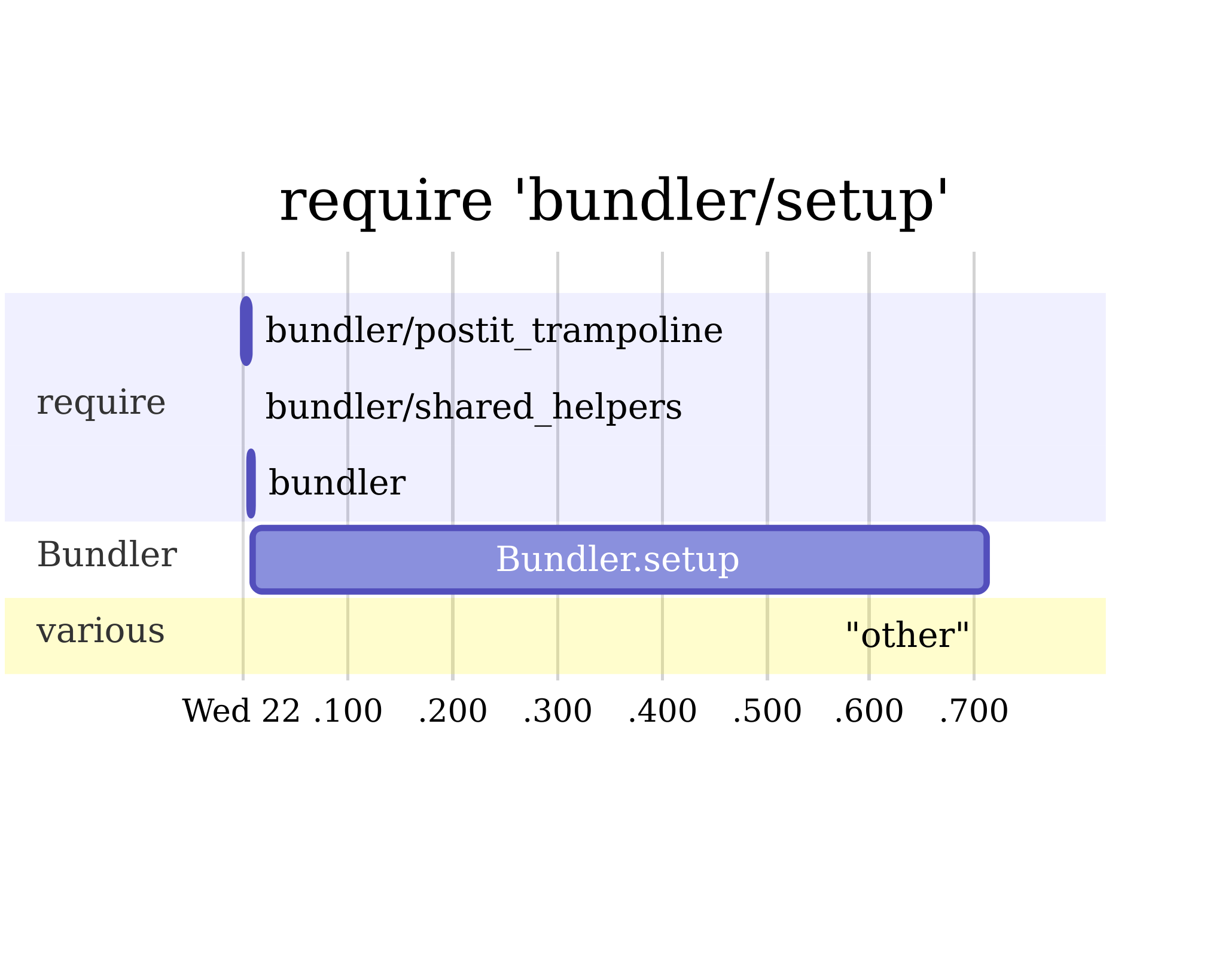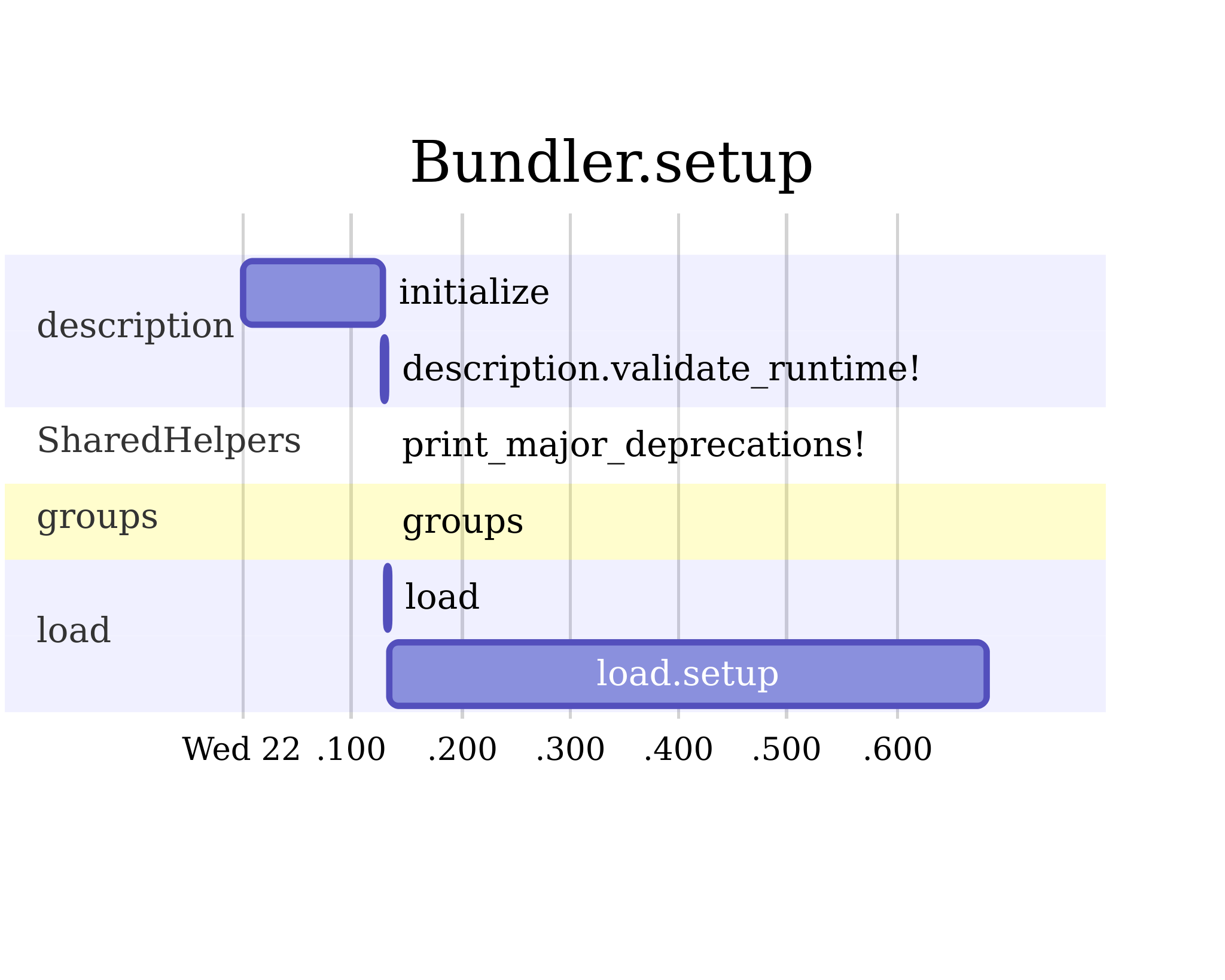Bundler setup parses through dependencies and compiles them into proper load paths. This step, on smaller applications, takes very little time. However on larger applications, this step can take a long duration - about 700-750ms to be exact.
Below are notes about how long certain parts take.
Timing Helper
Throughtout these notes, I am using a method _t. This is a timing helper for scrappy timing defined as such:
def _t(label)
t = Process.clock_gettime(Process::CLOCK_MONOTONIC)
ret = yield
puts "#{label} #{Process.clock_gettime(Process::CLOCK_MONOTONIC) - t}"
ret
end
The key thing to note is that it uses CPU time and the return value is whatever it is from the yield. The latter point makes it easy to track things down.
Highest Level
If we open the bundler/setup.rb file up, we might notice that it is small enough to simply benchmark each line. Doing this results in the following sequence diagram:

We can take note that Bundler.setup results in almost the entire duration of the call to require 'bundler/setup'. Let’s dig into that more.
Bundler.setup
The call to Bundler.setup is a little bit ambiguous due to parameters, but checking the source_location at runtime results in setup at line 90 of lib/bundler.rb.
This was what I originally thought, but it it good to check.
Bundler.method(:setup).source_location
["/Users/juliannadeau/.gem/ruby/2.3.3/gems/bundler-1.14.5/lib/bundler.rb", 90]
The method definition here is as follows:
return @setup if defined?(@setup) && @setup
definition.validate_runtime!
SharedHelpers.print_major_deprecations!
if groups.empty?
# Load all groups, but only once
@setup = load.setup
else
load.setup(*groups)
end
We can see that it caches the orginal result on the Bundler class and so we can only call it once per run. This is good as it will save a lot of time if we happen to call it twice.
A few questions I have up front:
- is
definitiona variable or a method? Given that this is the first call to a class, it’s probably a method. -
groupsis almost definitely empty. It is probably a method too. Is it cached? - same thing with
load
The reason this is important is that while the method calls on the return values of the methods mentioned above should be traced, we need to make sure that the method calls to get those return values aren’t slow either. To do this, we will need to split up the variable/method calls.
We end up with this:
return @setup if defined?(@setup) && @setup
d = _t('definition') do
definition
end
_t('validate_runtime!') do
d.validate_runtime!
end
_t('print_major_deprecations') do
SharedHelpers.print_major_deprecations!
end
g = _t('groups') do
groups
end
l = _t('load') do
load
end
if g.empty?
# Load all groups, but only once
@setup = _t('setup 1') do
l.setup
end
else
_t('setup 2') { l.setup(*groups) }
end
Results of timing

It is painfully obvious that we spend a lot of time in 2 spots. About 1/3 of the time is spent in definition, and the other 2/3 is spent in load.setup (specifically the setup call). We’ll dig into both of these separately.
To continue this path: